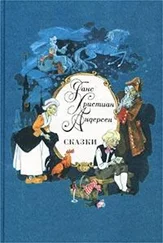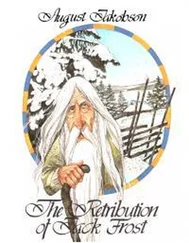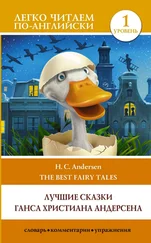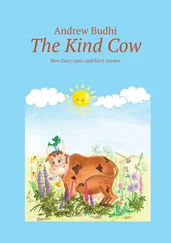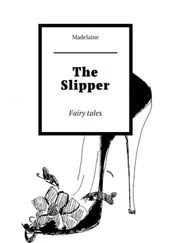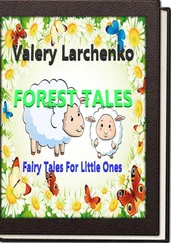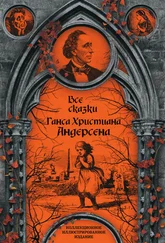Ганс Андерсен - Fairy Tales
Здесь есть возможность читать онлайн «Ганс Андерсен - Fairy Tales» весь текст электронной книги совершенно бесплатно (целиком полную версию без сокращений). В некоторых случаях можно слушать аудио, скачать через торрент в формате fb2 и присутствует краткое содержание. Жанр: Старинная литература, на английском языке. Описание произведения, (предисловие) а так же отзывы посетителей доступны на портале библиотеки ЛибКат.
- Название:Fairy Tales
- Автор:
- Жанр:
- Год:неизвестен
- ISBN:нет данных
- Рейтинг книги:4 / 5. Голосов: 1
-
Избранное:Добавить в избранное
- Отзывы:
-
Ваша оценка:
- 80
- 1
- 2
- 3
- 4
- 5
Fairy Tales: краткое содержание, описание и аннотация
Предлагаем к чтению аннотацию, описание, краткое содержание или предисловие (зависит от того, что написал сам автор книги «Fairy Tales»). Если вы не нашли необходимую информацию о книге — напишите в комментариях, мы постараемся отыскать её.
Fairy Tales — читать онлайн бесплатно полную книгу (весь текст) целиком
Ниже представлен текст книги, разбитый по страницам. Система сохранения места последней прочитанной страницы, позволяет с удобством читать онлайн бесплатно книгу «Fairy Tales», без необходимости каждый раз заново искать на чём Вы остановились. Поставьте закладку, и сможете в любой момент перейти на страницу, на которой закончили чтение.
Интервал:
Закладка:
Student Holberg went to church. On the way there and coming back he went by Sivert the sack-peeper’s house at the gate and was invited in for a mug of warm beer with syrup and ginger. The talk fell to Mother Søren, but the sack-peeper didn’t know much about her. Nobody did. She wasn’t from Falster, he said. She had evidently had a little money once. Her husband was an ordinary sailor with a hot temper. He had beat a captain from Dragør to death. “He whips his old lady too, and yet she defends him.”
“I wouldn’t tolerate such treatment!” said the sack-peeper’s wife. “But I come from a better class. My father was a royal stocking weaver.”
“And therefore you also married a royal civil servant,” said Holberg and made a deep bow to her and the sack-peeper.
It was Twelfth Night Eve. 3Mother Søren lit for Holberg a Twelfth Night light, that is to say, three tallow candles she had dipped herself.
“One candle for each man!” said Holberg.
“Each man?” said the woman and stared hard at him.
“Each of the wise men from the east,” said Holberg.
“Oh, them,” she said and was quiet for a long time. But in that Twelfth Night he learned more about her than he had known before.
“You care about the man you’re married to,” said Holberg, “but people say that he mistreats you.”
“That only concerns me,” she answered. “Those blows could have done me some good as a child. I guess I get them now because of my sins, but I know what good he has done for me.” She stood up. “When I lay on the open heath, and no one cared about me, except maybe the rooks and crows who wanted to peck at me, he carried me in his arms and received only angry words for bringing me to the ship. I wasn’t made for illness. So I got well. Everyone has his own way, and Søren has his. You can’t judge the horse by the halter. I have lived more happily with him than with the one they call the most courteous and distinguished of all the king’s subjects. I was married to Governor Gyldenløve, the king’s half-brother. Later I married Palle Dyre. It makes no difference. Each has his own way, and I have mine. That was a long talk, but now you know it!” And she left the room.
It was Marie Grubbe! How strange were her changes of fortune! She didn’t live many more Twelfth Nights. Holberg wrote that she died in June of 1716, but what he didn’t write, because he didn’t know, was that when Mother Søren, as she was called, lay in her coffin in the ferry house, a flock of big black birds flew over. They didn’t shriek, as if they knew that silence belongs to funerals. As soon as she was buried, the birds were no longer seen, but the same evening enormous flocks of rooks, crows, and jackdaws were sighted in Jutland, by the old castle. Each screamed louder than the next, as if they had something to tell. Maybe it was about him who as a little boy had taken their eggs and downy chicks, the farmer’s son, who ended up in irons on the king’s island; and about the noble maiden, who ended up a ferryman’s wife at Grønsund. “Bra! Bra!” 4they cried.
And their relatives cried “Bra, bra!” when the old castle was torn down. “They are crying it yet, and there’s nothing left to cry over,” said the schoolteacher as he related it. “The family has died out. The castle was torn down, and where it stood now stands the stately henhouse with the gilded weathervane, and with old Hen-Grethe inside. She is so happy to have her lovely house, and if she hadn’t come here, she’d be in the poorhouse.”
The doves cooed above her. The turkeys gobbled round about, and the ducks quacked. “No one knew her,” they said. “She has no family. It’s an act of mercy that she’s here. She has neither a drake father nor a hen mother, and no offspring.”
But she did have a family. She didn’t know it, nor did the schoolmaster, no matter how much material he had in his table drawer. But one of the old crows knew and told about it. From its mother and grandmother it had heard about Hen-Grethe’s mother and grandmother, whom we know too, from the time she rode as a child over the drawbridge and looked around proudly as if the whole world and all its bird nests were hers. We saw her on the heath by the sand dunes, and finally at the ferry house. Her grandchild, the last of the family, had come home again where the old castle had stood and the wild black birds had screamed. But she sat amongst tame birds, known to them and knowing them. Hen-Grethe had nothing more to wish for. She was happy to die, and old enough to die.
“Grave! Grave!” croaked the crows.
And Hen-Grethe got a good resting place, but no one knows where, except the old crow, unless she’s dead too.
And now we know the story about the old castle, the old kin-ships, and all of Hen-Grethe’s family.
NOTES
1 Often called the father of Danish and Norwegian literature, Ludwig Holberg (1684-1754) was the most important intellectual and writer in eighteenth-century Denmark and Norway; he wrote drama, comedies, history, and essays on a wide variety of topics.
2 Reference to a nickname for tollgate attendants who collected tax on products at town gates. The name comes from Ludvig Holberg’s play Den politiske Kandestøber (The Political Tinker).
3 The twelfth day after Christmas is called Epiphany. The evening before (sometimes the evening of) this day is called Twelfth Night.
4 In Danish bra means “good” or “fine.” Andersen is very fond of onomatopoeia.
EVERYTHING IN ITS PROPER PLACE
IT WAS OVER A hundred years ago.
Back in the forest beside the big lake there was an old manor house, and around it there was a deep moat full of rushes and reeds. Right by the bridge to the entrance gate stood an old weeping willow, whose branches leaned over the reeds.
From the high banked road she heard horns and the tramping of horses so the little goose girl hurried to get her geese off the bridge before the hunting party came galloping over. They came so fast that she quickly had to jump up on one of the high stones by the bridge to avoid being run down. She was still half a child, thin and delicate, but with a blessed expression on her face and two pretty clear eyes, but the lord of the manor didn’t look at that. At the great pace he was traveling, he turned his whip in his hand and in coarse merriment, he poked her with the shaft right in the chest so she fell over backwards.
“Everything in its proper place!” he yelled, “into the dirt you go!” and then he laughed. It was supposed to be so funny, and the others laughed too. The whole party was yelling and screeching, and the hunting dogs were barking. It really was “rich birds come a’whistling,” but God knows how rich he still was then.
The poor goose girl reached out as she fell and grasped one of the over-hanging willow branches. She was able to hold herself up from the mud, and as soon as the hunting party and the dogs were well inside the gate, she struggled to pull herself up. But the branch broke off at the top, and the goose girl fell heavily backwards in the reeds just as a strong hand from above grabbed her. It was an itinerant peddler who had seen what had happened from a distance and had hurried to help her.
“Everything in its proper place,” he said in jest, mimicking her master, and pulled her up on dry land. He put the broken branch back in the place where it had broken off, but “in its proper place” doesn’t always work! So then he stuck the branch down in the soft earth—“grow if you can and may a flute cut from you make that master pay the piper!” He thought that the master and his friends deserved a whipping. Then the peddler went up to the manor, but not to the main hall—he wasn’t good enough for that. He went to the folks in the servants’ quarters, and they looked at his wares and bargained with him. But from the banquet hall came yells and bawling. It was supposed to be singing, but they weren’t good at it. There was laughter and barking of dogs, gorging and boozing. Wine and old beer foamed in the glasses and mugs, and the pet dogs feasted too. The young noblemen kissed first one and then another of them, after they first wiped the dogs’ snouts with their long ears. The peddler was called up to show his wares, but only so they could make fun of him. When the wine goes in, the wit goes out. They poured beer into a stocking for him so he could drink with them, but quickly! It was all so very clever and witty! And whole herds of cattle and farms with farmers too were bet and lost on just one card.
Читать дальшеИнтервал:
Закладка:
Похожие книги на «Fairy Tales»
Представляем Вашему вниманию похожие книги на «Fairy Tales» списком для выбора. Мы отобрали схожую по названию и смыслу литературу в надежде предоставить читателям больше вариантов отыскать новые, интересные, ещё непрочитанные произведения.
Обсуждение, отзывы о книге «Fairy Tales» и просто собственные мнения читателей. Оставьте ваши комментарии, напишите, что Вы думаете о произведении, его смысле или главных героях. Укажите что конкретно понравилось, а что нет, и почему Вы так считаете.

![Ганс Андерсен - Ганс Чурбан[другой перевод]](/books/95480/gans-andersen-gans-churban-drugoj-perevod-thumb.webp)
